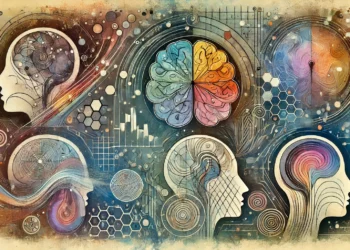Anxious people may be more prone to associate neutral environmental cues with emotional experiences. Psychologists call this over-generalization, and research into the matter might explain why a seemingly minor event can sometimes unleash a full blown anxiety episode. We might also learn more about the wiring of the anxious brain which fires in different patterns than the ‘normal’ brain.

In a new research, Rony Paz of Weizmann Institute of Science in Israel and colleagues trained anxious persons, as well as healthy controls, to associate three distinct audible tones with three outcomes: money loss, money gain or no consequence.
After the initial training, participants were asked in the next phase whether or not they heard before a tone among fifteen that were played back. If the participant was right, cash was awarded.
The researchers from Israel found that those that were diagnosed with anxiety were much more likely than the control to judge a completely new tone as one they had heard earlier. This difference in perception could not be explained by hearing or learning abilities.
Moreover, brain scans performed with a fMRI machine showed striking differences between anxious patients and controls, as reported in Current Biology. Those differences were mainly found in the amygdala, a brain region related to fear and anxiety, and also in primary sensory regions of the brain.
Researchers think that anxiety attaches emotional responses to new environmental cue, altering sensory perception.
“We show that in patients with anxiety, emotional experience induces plasticity in brain circuits that lasts after the experience is over,” says Paz. “Such plastic changes occur in primary circuits that later mediate the response to new stimuli, resulting in an inability to discriminate between the originally experienced stimulus and a new similar stimulus. Therefore, anxiety patients respond emotionally to such new stimuli as well, resulting in anxiety even in apparently irrelevant new situations. Importantly, they cannot control this, as it is a perceptual inability to discriminate.”
Previously, studies showed that living with anxiety can warp perceptions of other people, especially their intentions toward us. It may also lead to a distorted sense of reality. Paz cautioned however that there’s nothing inherently bad with anxiety.
“Anxiety traits can be completely normal, and even beneficial evolutionarily. Yet an emotional event, even minor sometimes, can induce brain changes that might lead to full-blown anxiety,” he says.






